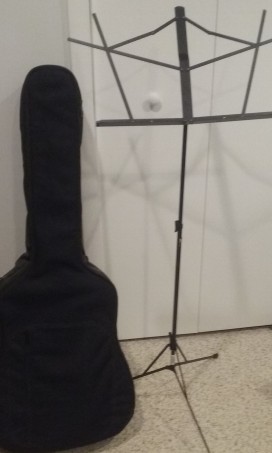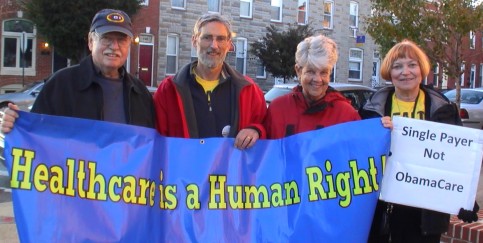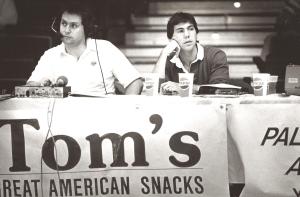Career Change at 50 ‘Can Be a Perilous Thing’
Altering a career course at fifty can be a perilous thing, and many people, if not most, do not traipse merrily down that path. The luckiest among us find their work fulfilling, and cannot imagine why they would leave. Others would follow their passions if they could, but college tuition, the mortgage, and the care of parents or children or both buckle them into their present work…Still others are simply scared – with good reason, because the job market does not necessarily embrace mid-career transitions.
— Barbara Bradley Hagerty, Life Reimagined
I embarked on a path to a new career at 48. It was more like entering a maze – I couldn’t see what was around the next corner, let alone envision arriving at the destination. I had doubts about whether I would have the fortitude to finish, and whether I actually even wanted to make a dramatic change and start over so late in my professional life.
I had established several decades of skills and experience as a journalist and public relations professional – fields that wouldn’t earn me a cup of coffee in the new career I was pursuing. I wasn’t just transferring and adjusting skills, as I did when I made the leap from journalism to PR. I was doing a total makeover, learning a new way of being.
“The brain likes its habits…and hates change,” Bradley Hagerty quotes a Harvard Medical School professor. “The brain despises conflict: It reasons that I may be happier over there,  but I am earning a good paycheck here, and in general it resolves this cognitive dissonance in favor of the familiar. At the bottom of every dilemma is fear.”
but I am earning a good paycheck here, and in general it resolves this cognitive dissonance in favor of the familiar. At the bottom of every dilemma is fear.”
To make the change I sought – becoming a mental health counselor/therapist – I had no choice but to return to school for a marathon master’s degree venture, and ultimately confront the fear of the unfamiliar and the insecurity of the lower earnings commensurate with starting anew.
At first, I merely dipped my toe in the water by applying to a program and enrolling in the first of 22 required courses. I nearly dropped out after breaking my leg before completing my first course and losing motivation, feeling overwhelmed by the long road ahead. I overcame ambivalence and registered for a second course a few days before the next semester began. From there, it was a step-by-step progression that would have registered in the hundreds on a Fitbit.
After 5 ½ years of classes and internships and another five months of bureaucratic license- application process, I have been hired for my first professional job as a licensed counselor at age 54. As Bradley Hagerty writes in her book about midlife, it has not been a merry traipse, though it has been rewarding nonetheless – the sense of striving and accomplishment, the satisfaction of learning and growing, the excitement of pursuing something new and meaningful that will contribute toward others.
“The role of people in their second half of life is not to build up for themselves, but to begin to give away their time, energy and talents,” Bradley Hagerty writes.
There have been costs accompanying the benefits. I left my job two years ago, largely because it was incompatible with the latter stages of the master’s degree program, where I had to serve internships for four semesters. That plunged me from making a comfortable living to pay for a mortgage, two college tuitions and care of children – just as Bradley Hagerty identified – to an itinerant work life in the Gig Economy, working lower-paying temporary, part-time and seasonal jobs. Breaking even on the monthly household budget, much less saving for retirement, went out the window.
Psychologically and emotionally, I felt unmoored. After all, what kind of responsible, mature man in his 50s would be working the same summer job alongside college students as a tennis teacher? Wasn’t I supposed to be at the peak of my earning power – indeed, the job I left provided me the highest salary I had ever made – instead of making the same hourly wages I earned in my 20s? All this so I could enter a new career at the bottom rung in a profession where beginning pay is notoriously low. Just to drive home the point that I’m a rookie, my license for my first two years identifies me as “Licensed Professional Counselor-Intern.”
Was I scared, as Bradley Hagerty suggests many midlife career deliberators rightly are, “because the job market does not necessarily embrace mid-career transitions?”
No…at least not so much to be deterred. I was more scared about looking back in a decade still with a yearning to try something new and realizing with regret that I missed my window. Once midlife careens on the backside toward older age, it becomes even harder to reinvent the self.
I also was entering a job market where there is a growing need, where men are relatively scarce and therefore actually valued for their gender perspective and traits, and where the accumulation of life experience and wisdom that comes with age is an advantage in helping other people with their problems – unlike some other professions, where older workers become dinosaurs because they can’t keep up with technology, trends, new methods and the requisite energy to stay on top. Or they are paid at the high end of the salary range, making them expendable in favor of hungry and more footloose up-and-comers.
Altering a career course at 50 certainly can be a perilous thing. There’s no guarantee the job market will unfurl a welcome mat for a midlife career changer or that the changer will be successful, however success is measured. I’ve managed to get through the front door; now I’ll find out for myself whether the new house I’m entering truly is my dream home.

 potential, my ability to strive for and attain goals I believe are worth pursuing, being happy with what I have at any given time rather than desiring what I don’t, and living life in a way that makes me feel positive about my actions, conduct and treatment of others, even though it will be far from perfect.
potential, my ability to strive for and attain goals I believe are worth pursuing, being happy with what I have at any given time rather than desiring what I don’t, and living life in a way that makes me feel positive about my actions, conduct and treatment of others, even though it will be far from perfect.
 At neighborhood events, I often see my former guitar teacher, my neighbor who has a guitar studio within walking distance where I once took lessons. And then, inevitably, a wave of regret and guilt washes over me.
At neighborhood events, I often see my former guitar teacher, my neighbor who has a guitar studio within walking distance where I once took lessons. And then, inevitably, a wave of regret and guilt washes over me. he opportunity to self-direct my future, embrace an entrepreneurial spirit, contribute value to society and work flexibly, creatively, collaboratively and independently. I explored life-coaching, completing a series of training courses, but ultimately didn’t pursue it. But the idea of
he opportunity to self-direct my future, embrace an entrepreneurial spirit, contribute value to society and work flexibly, creatively, collaboratively and independently. I explored life-coaching, completing a series of training courses, but ultimately didn’t pursue it. But the idea of  On the eve of the first Obamacare (Affordable Care Act) mano-a-mano showdown in Congress – well, at least the participants were in the same boxing ring – I re-emphasize my position that after all the overinflated chatter is aired and convoluted schemes are floated, the only real, efficient, cost-effective and sustainable solution is a single-payer health care system (Medicare for All, universal health care coverage).
On the eve of the first Obamacare (Affordable Care Act) mano-a-mano showdown in Congress – well, at least the participants were in the same boxing ring – I re-emphasize my position that after all the overinflated chatter is aired and convoluted schemes are floated, the only real, efficient, cost-effective and sustainable solution is a single-payer health care system (Medicare for All, universal health care coverage).